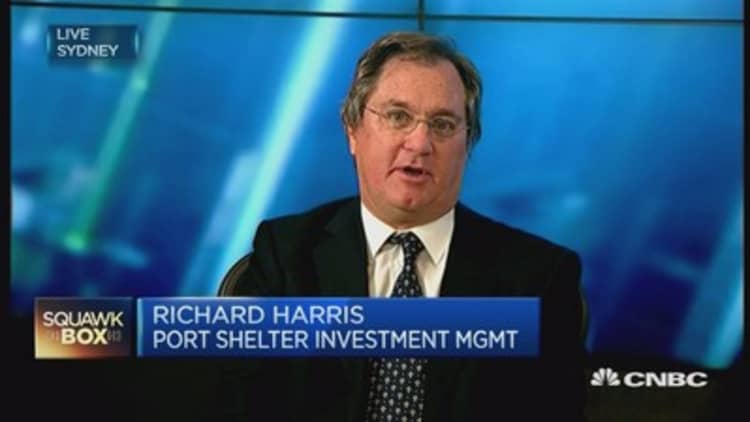Failed attempts to inject calm into agitated markets have not only hurt Beijing's credibility, they could result in a drastic overhaul of the way China governs financial and economic affairs.
The China Securities Regulatory Commission (CSRC), the country's securities watchdog, has particularly come under fire for its handling of the crisis. At the weekend, CSRC head Xiao Gang listed a range of factors behind the ructions in stocks, including China's pool of inexperienced investors and inappropriate supervision mechanisms.
The former Bank of China chairman has faced heavy criticism over the past year for failing to stop the market's steep run-up ahead of the trillion-dollar rout that began in mid-June. Xiao was also admonished for the agency's heavy-handed stabilization measures, such as a six-month ban on stock sales and a freeze on initial public offerings.
It's unclear whether such orders were Xiao's brainchildren but it's looking increasingly likely that they will cost him his job.
In fact, it was rumored that the 57-year-old tendered his resignation last week, but the CSRC has flatly denied it. Shortly after Reuters reported the news on Monday, its Weibo profile—considered one of China's most popular foreign media accounts—was censored out.
"Rumors were flying that Xiao Gang would resign during the implementation of the new selloff-inducing circuit-breakers, and [Saturday's] transcript gives weight to the argument that he may eventually be stood down and scapegoated for China's mishandling of the markets," said Angus Nicholson, IG market strategist.
Last August, speculation was rife that the ruling Communist Party had started looking for Xiao's replacement and just last week, state-owned media outlet The China Daily tweeted an unusually stinging condemnation of the CSRC.
Translated in English, the post said "regulators should be more clear-headed: there are still loopholes in the system, there is still inadequacy in regulatory efforts, there are even crises faced by talents in the CSRC."
"I frankly think Xiao Gang should go but, apparently, he is very close to [Chinese President] Xi Jinping. I am not sure whether this is why it is taking so long or, even worse, why he might stay with even greater power," noted Alicia Garcia Herrero, Asia Pacific chief economist at Natixis.
It's not just Xiao headed for the exit door—the entire CSRC could soon cease to exist.
"There is talk that there will be some sort of superagency that will meld together the three agencies overlooking securities (CSRC), insurance (China Insurance Regulatory Commission) and banking (China Banking Regulatory Commission)," Nicholson explained.

Last week, reports surfaced that Chongqing mayor Huang Qifan would be tipped to lead such a "superagency," which could streamline policy responses in periods of extreme volatility.
A lack of coordination between the three agencies has been the leading point of criticism behind China's handling of its frenzied markets. Each one acts independently but lack adequate communication, which has resulted in serious policy flip-flopping as officials struggle to strike a balance between limiting short-term market volatility while gradually opening up China's economy.
"The idea of such a merger seems to me quite likely. First of all, it is true that such fragmentation creates issues. Second, this is Xi's way to solve problems (think about what is going in with several state-owned enterprises)," said Herrero.
Indeed, consolidation in industries such as railway and shipping—a key feature of the initiative known as Made in China 2025—has been a common theme under Xi's regime in a bid to cut excess capacity and increase competitiveness.
"Finally, there may be international praise for such a merger as many countries have gone in this direction after some traumatic experiences, including the U.S," Herrero added.


